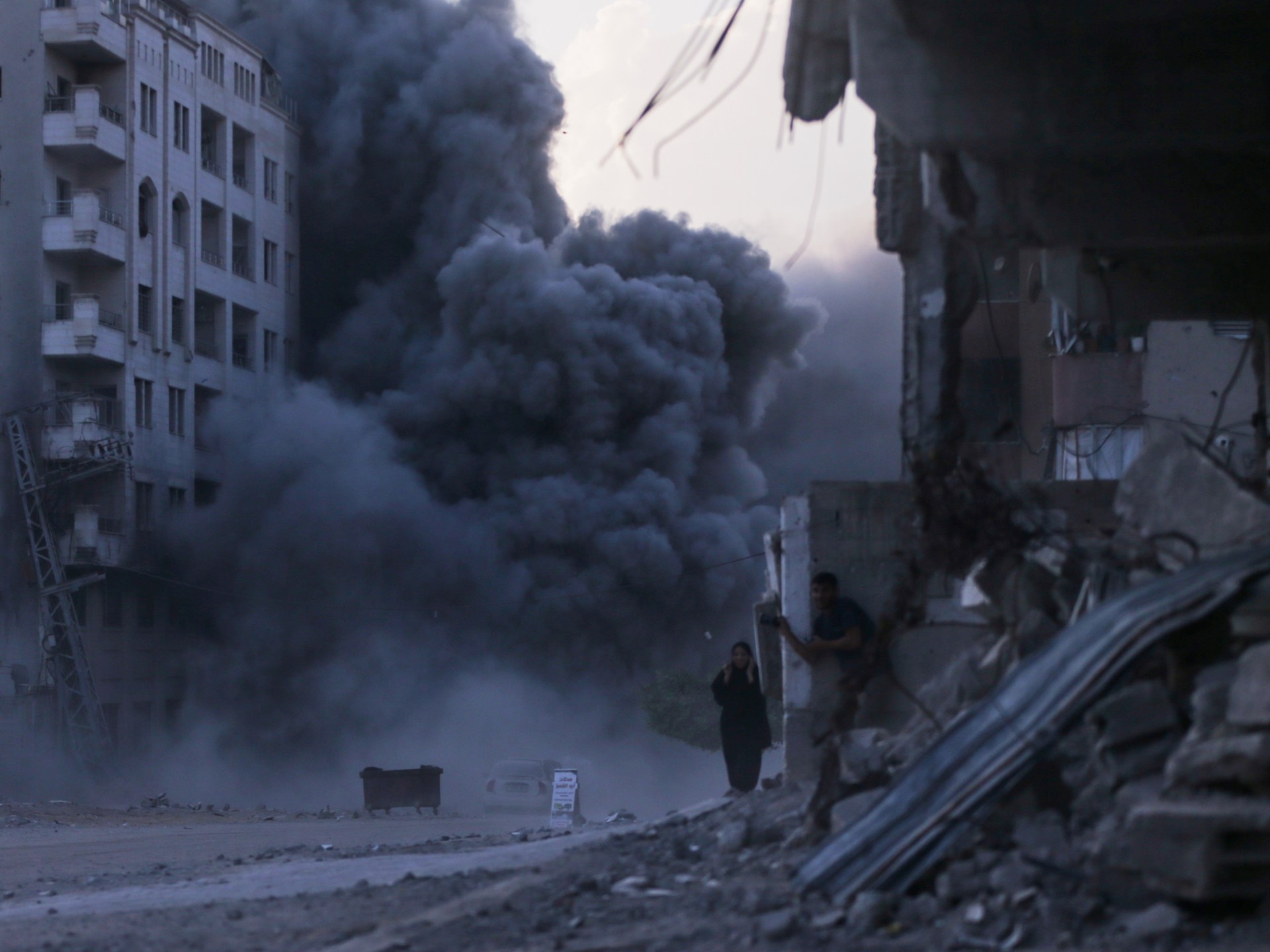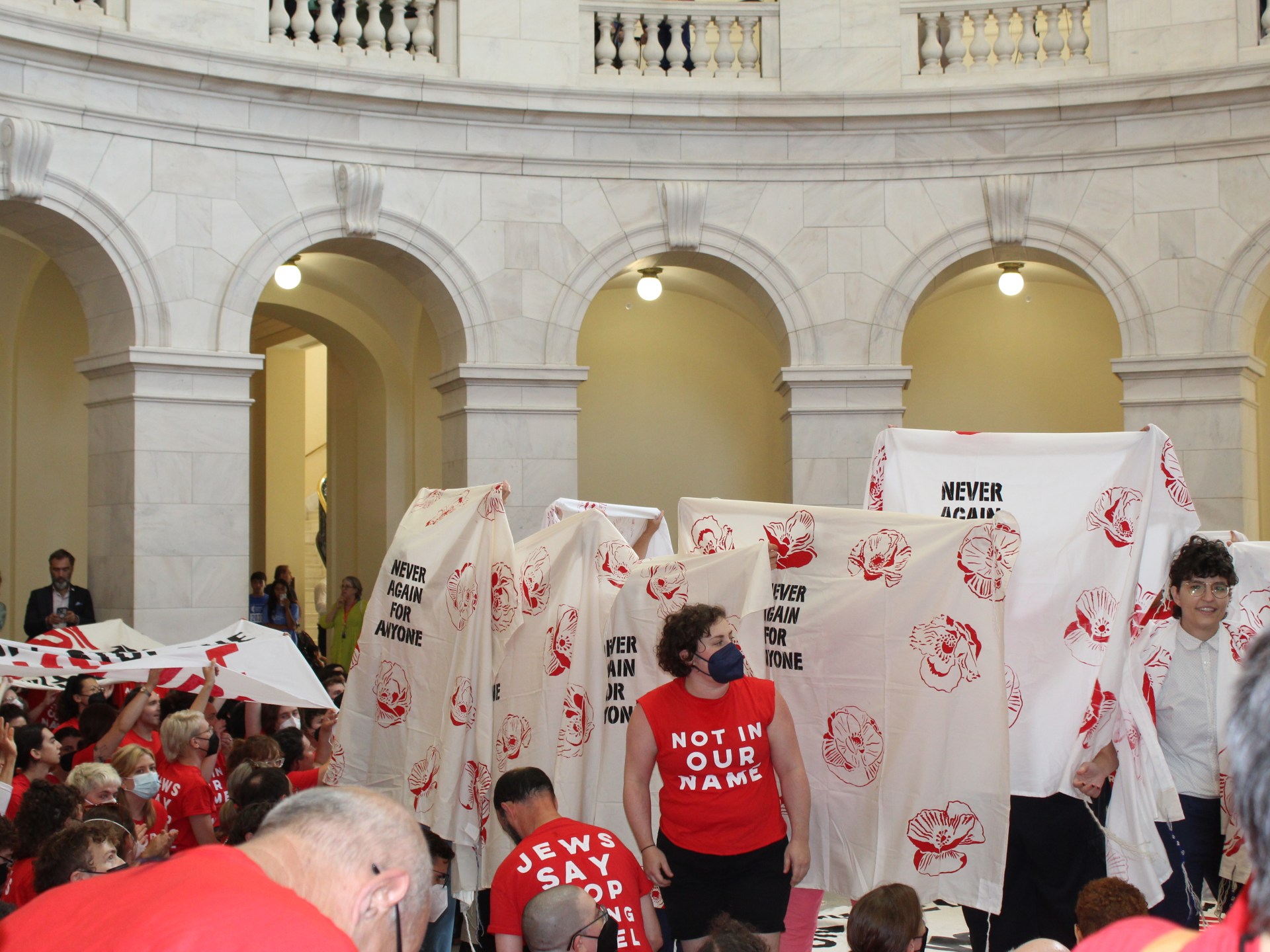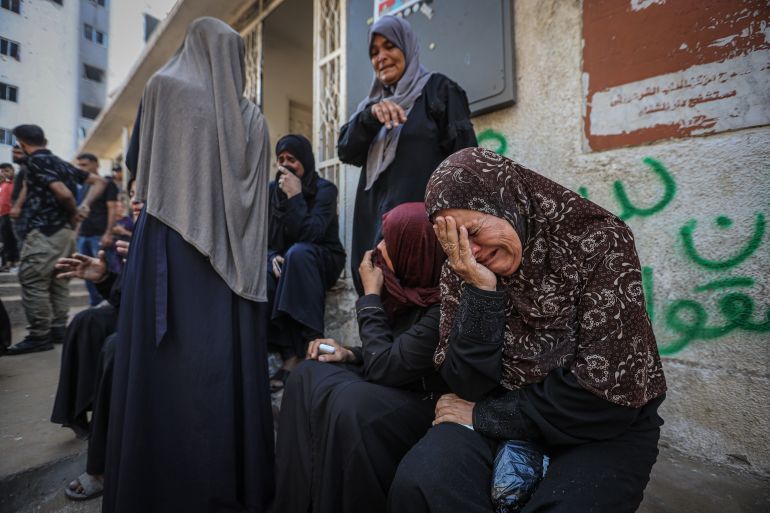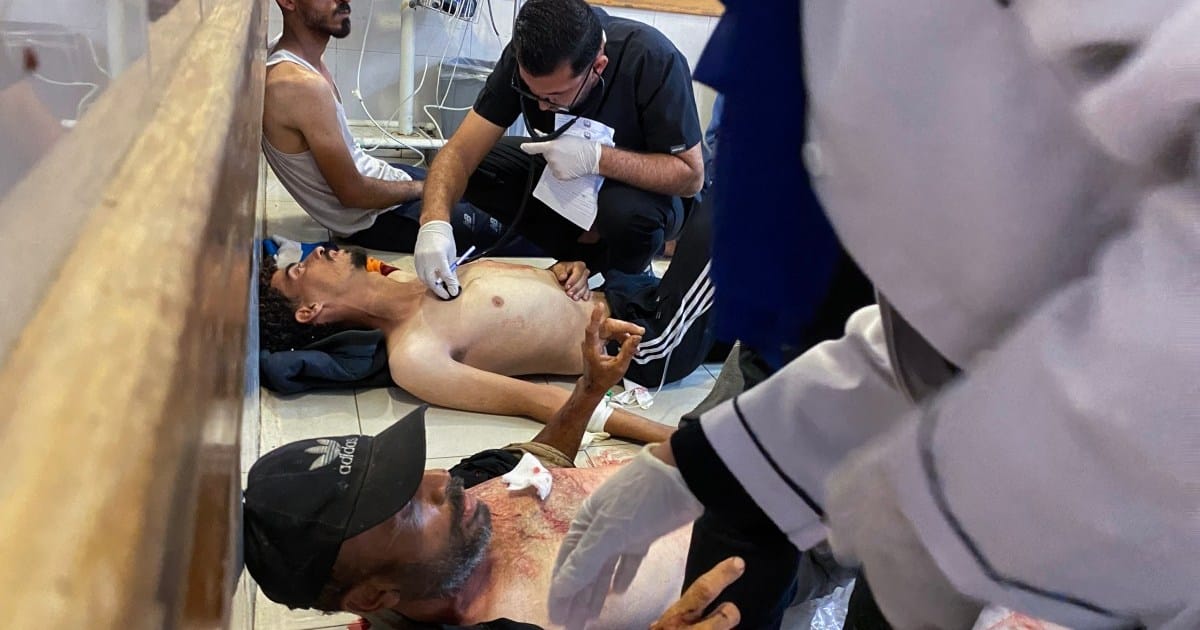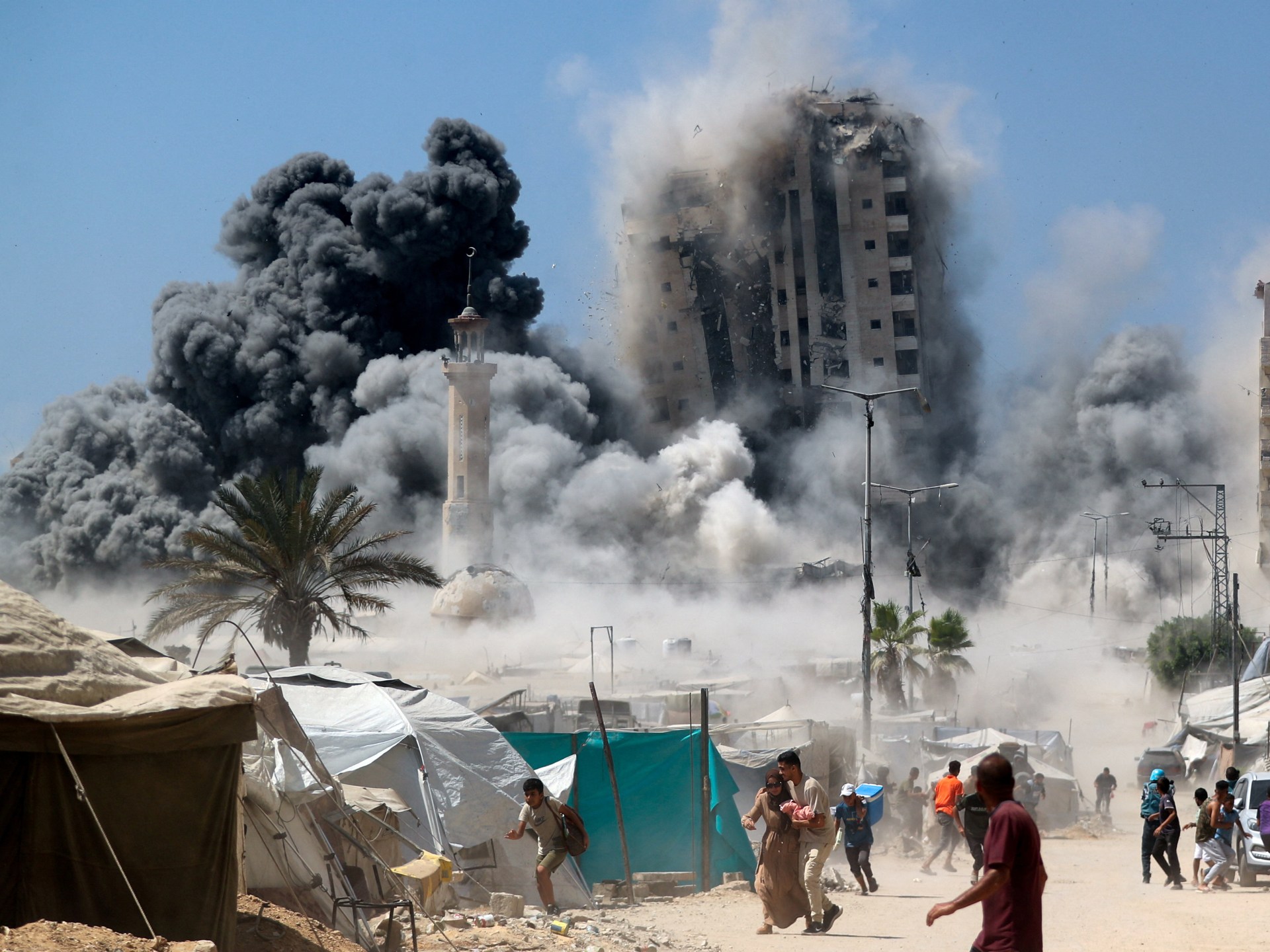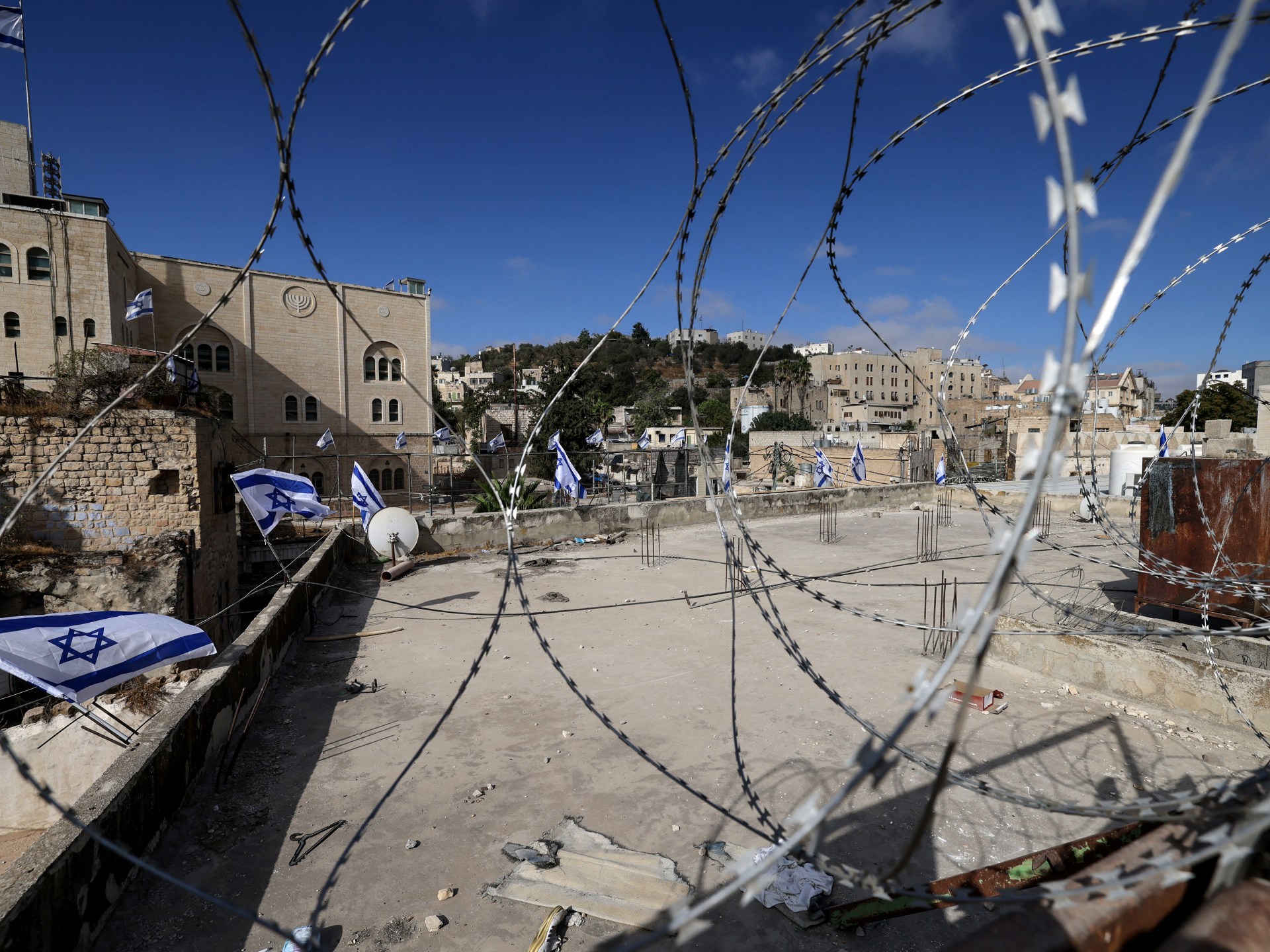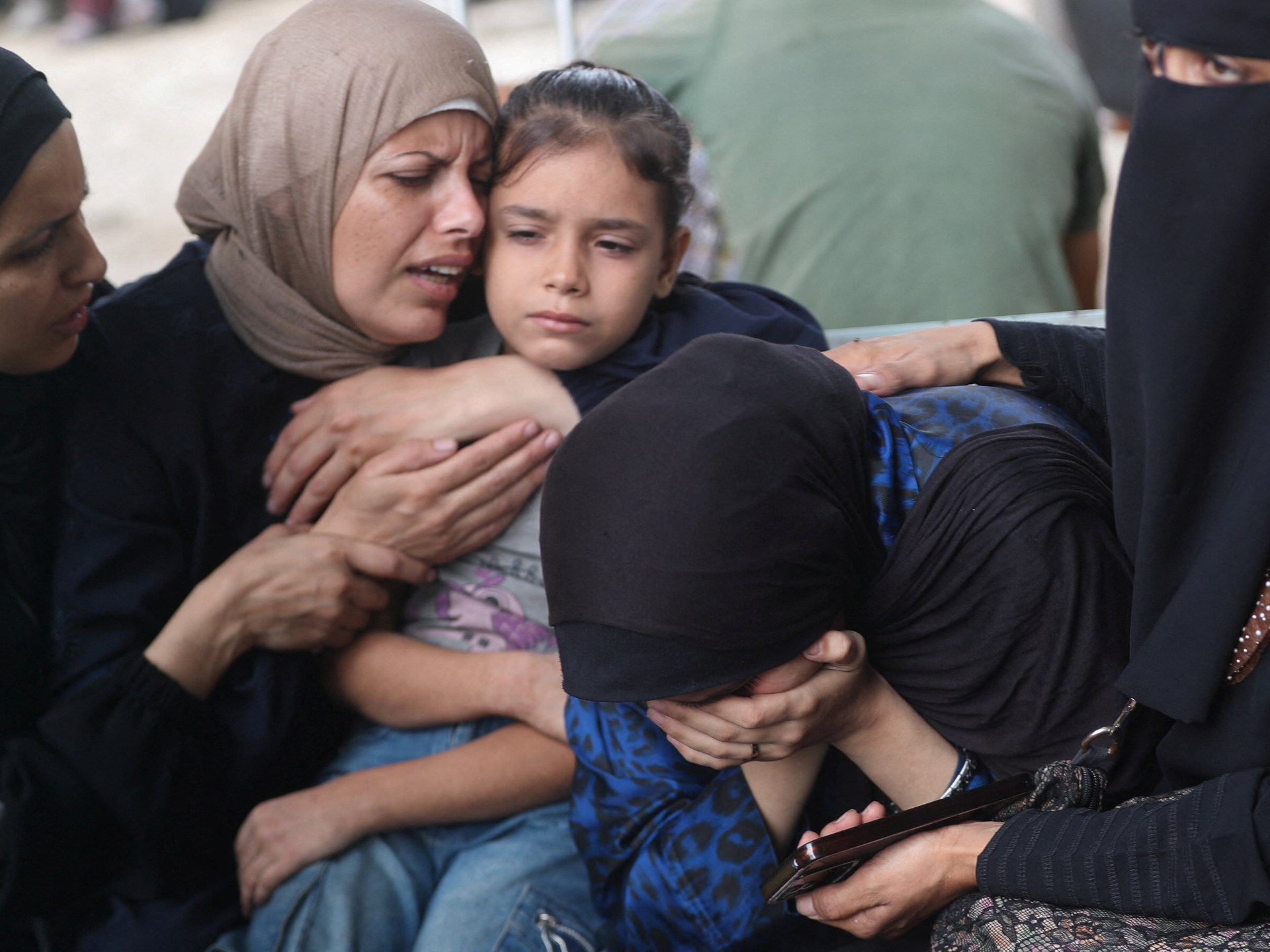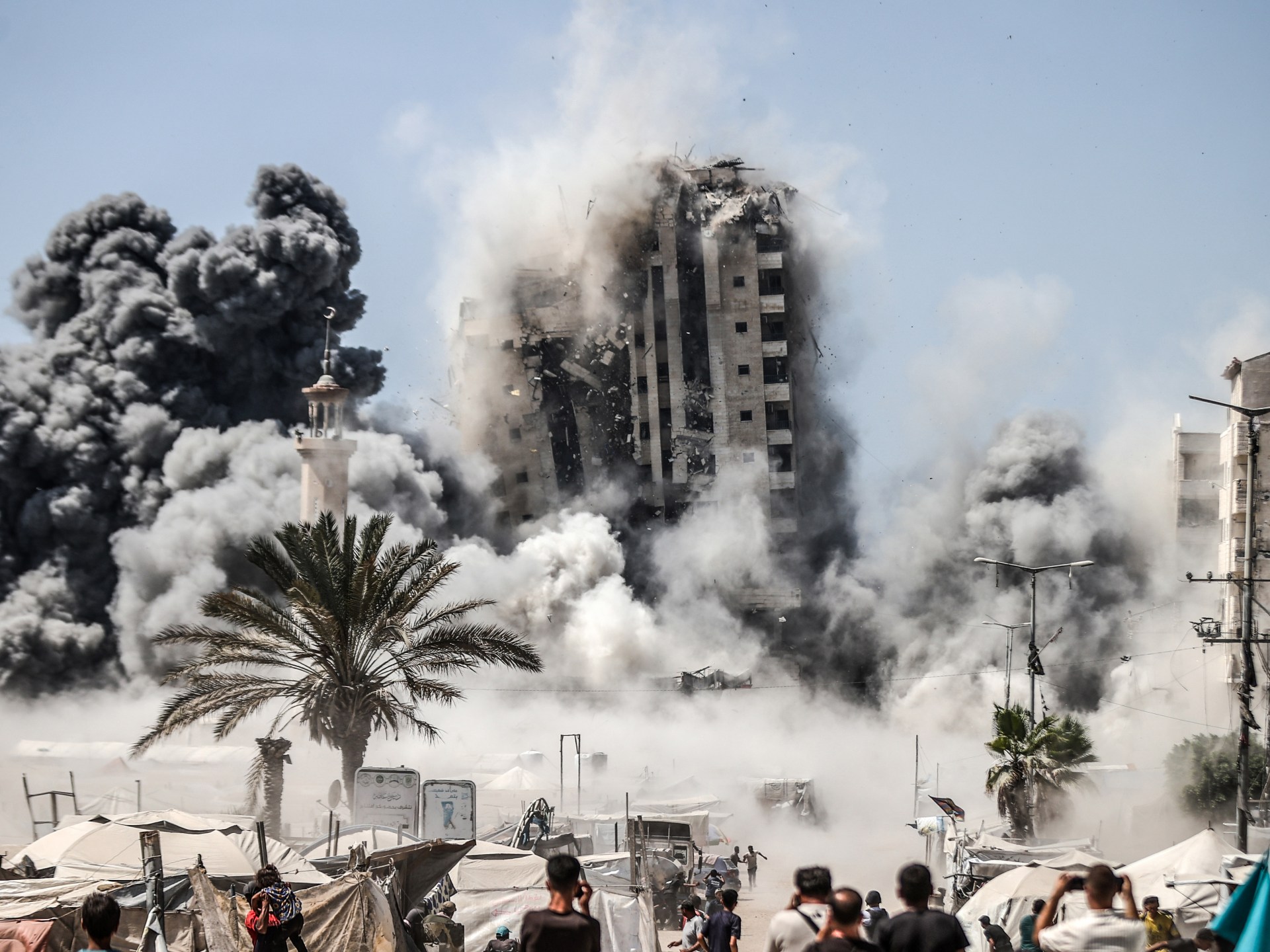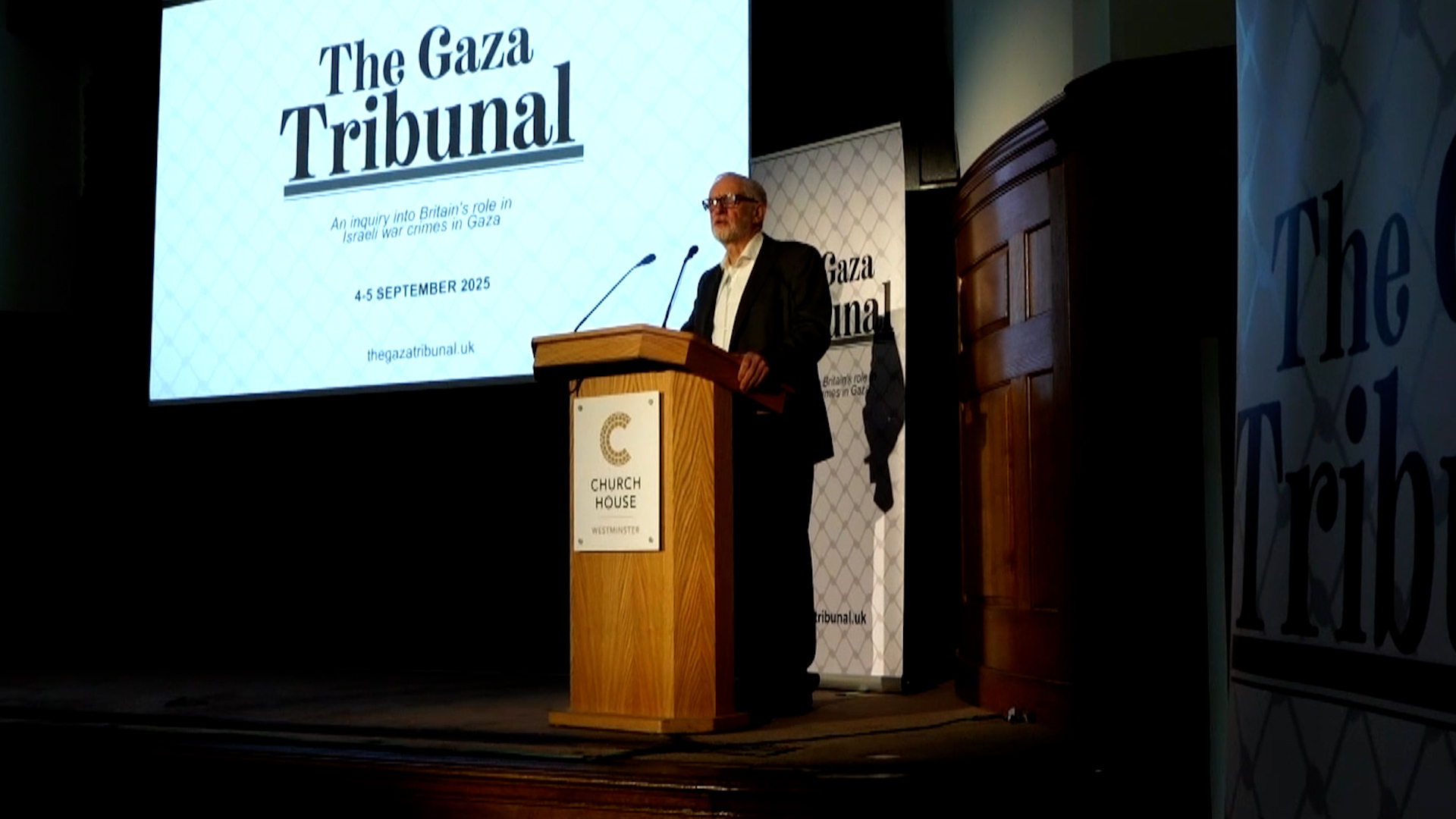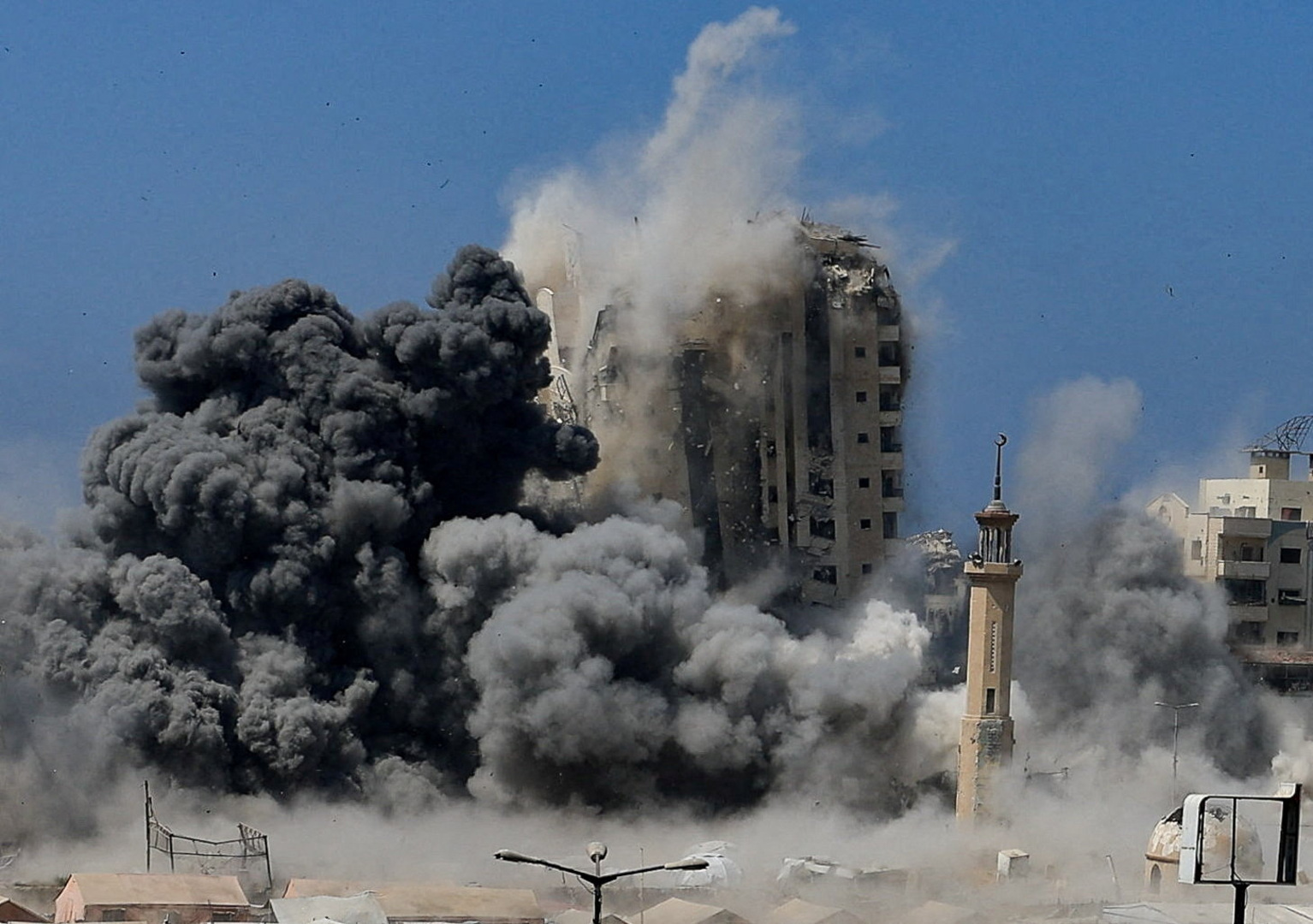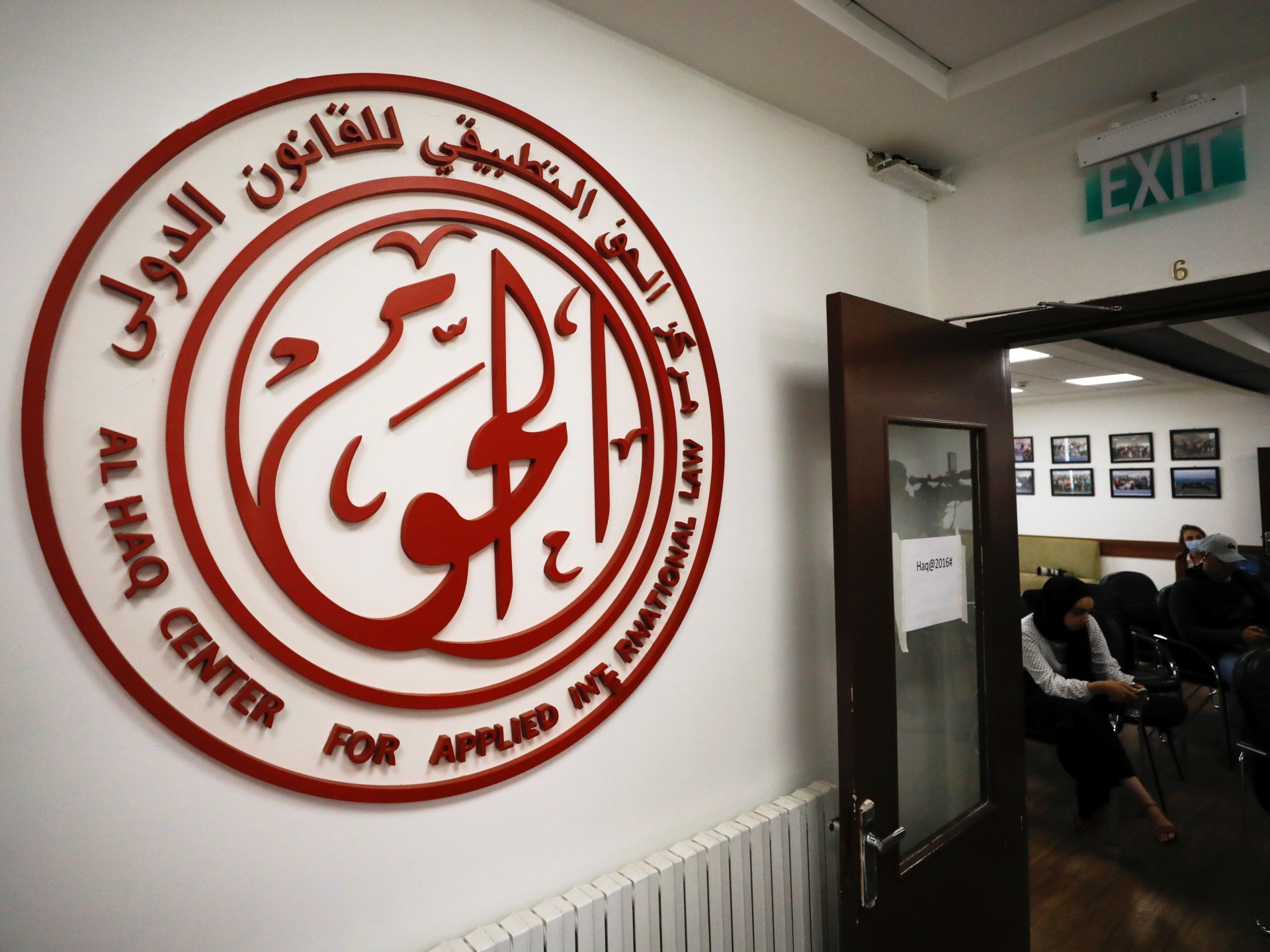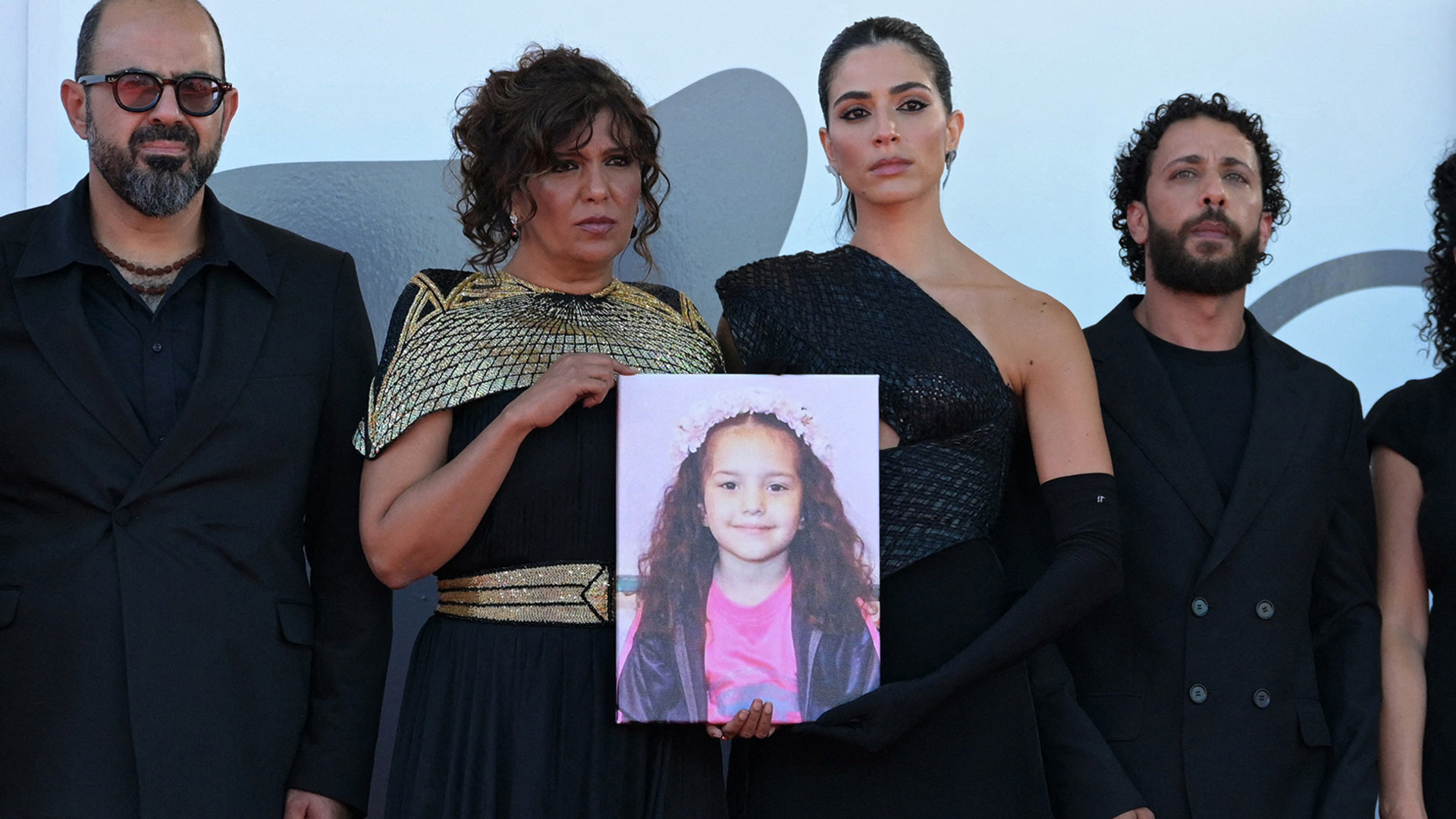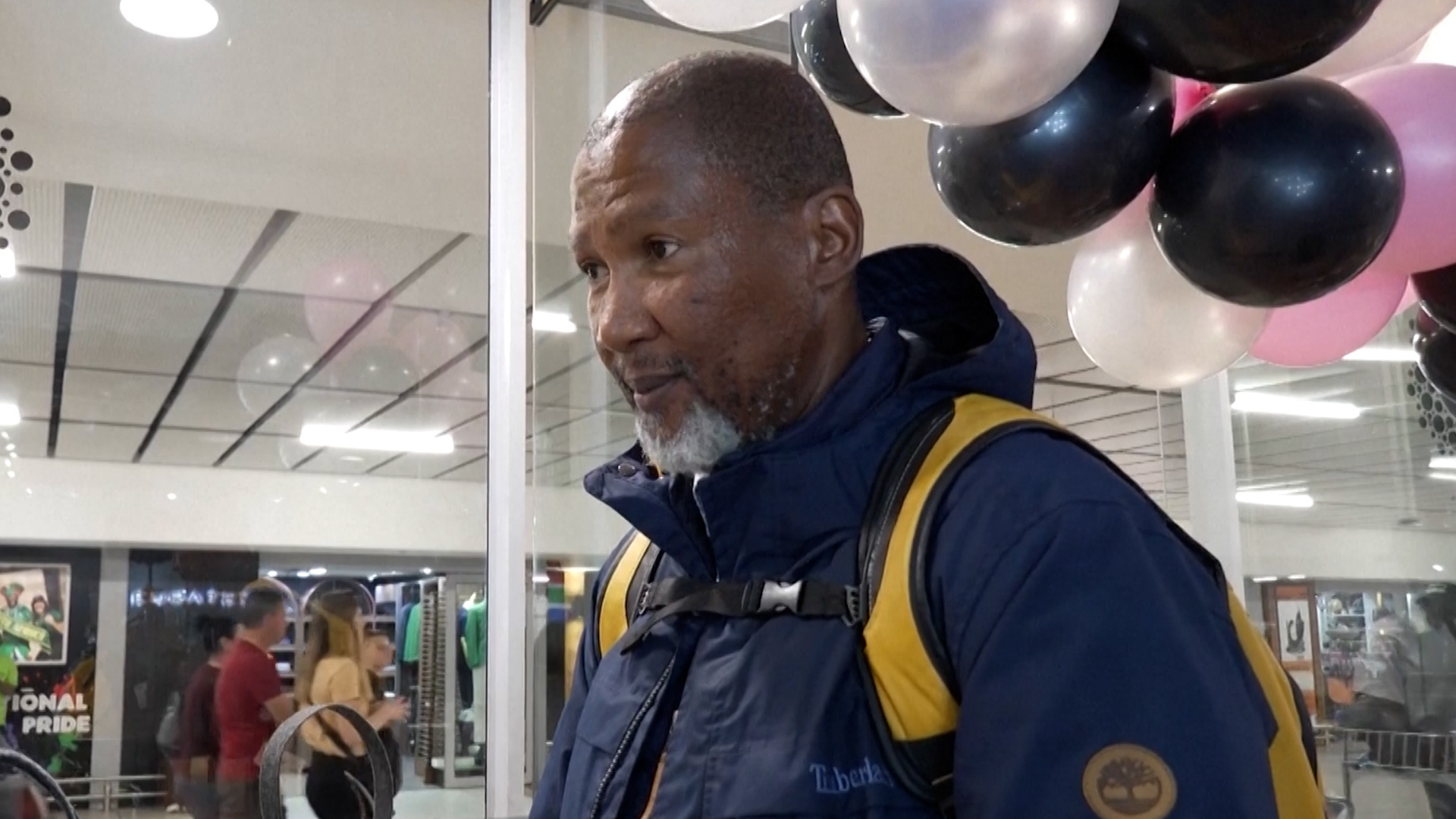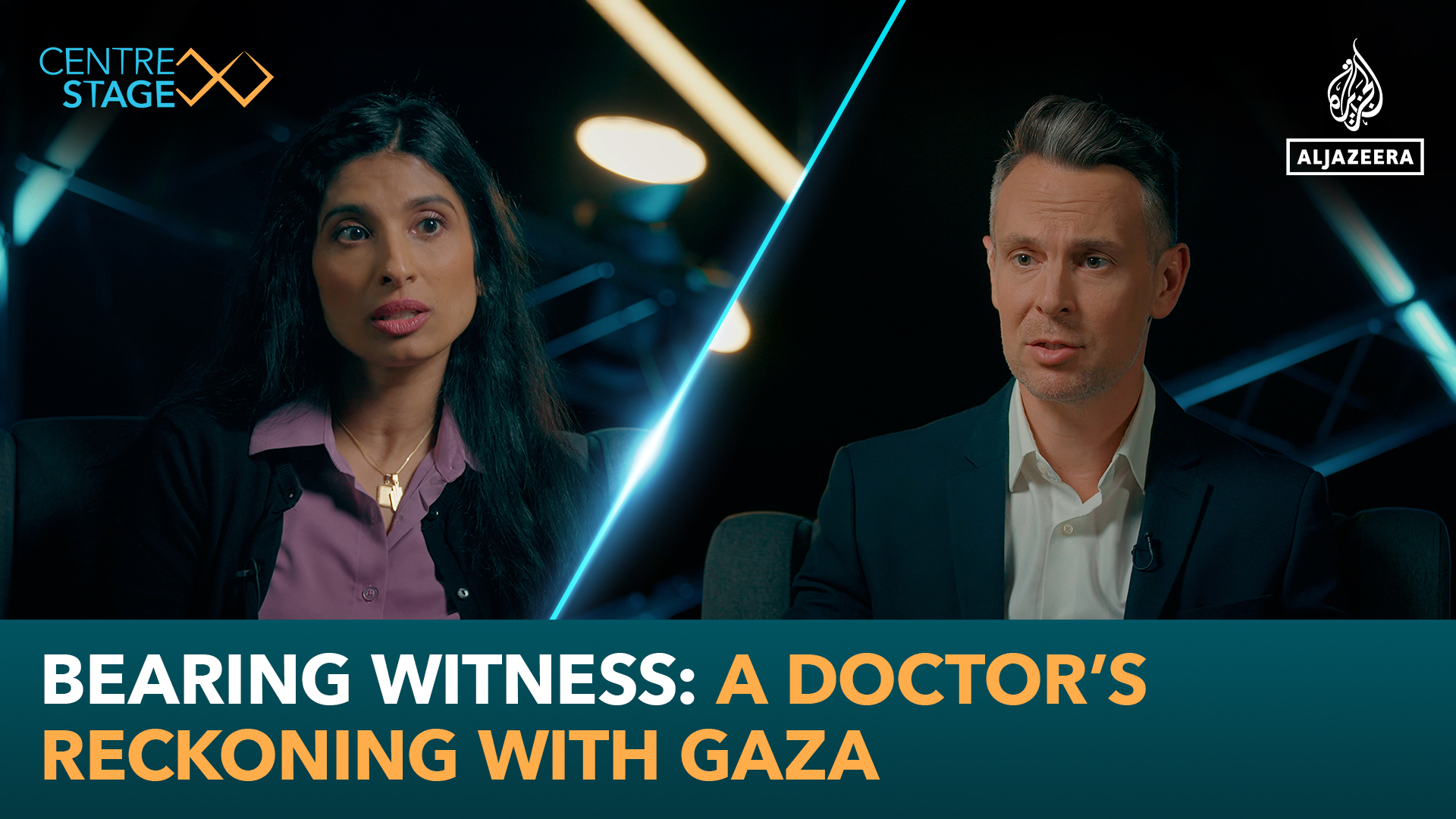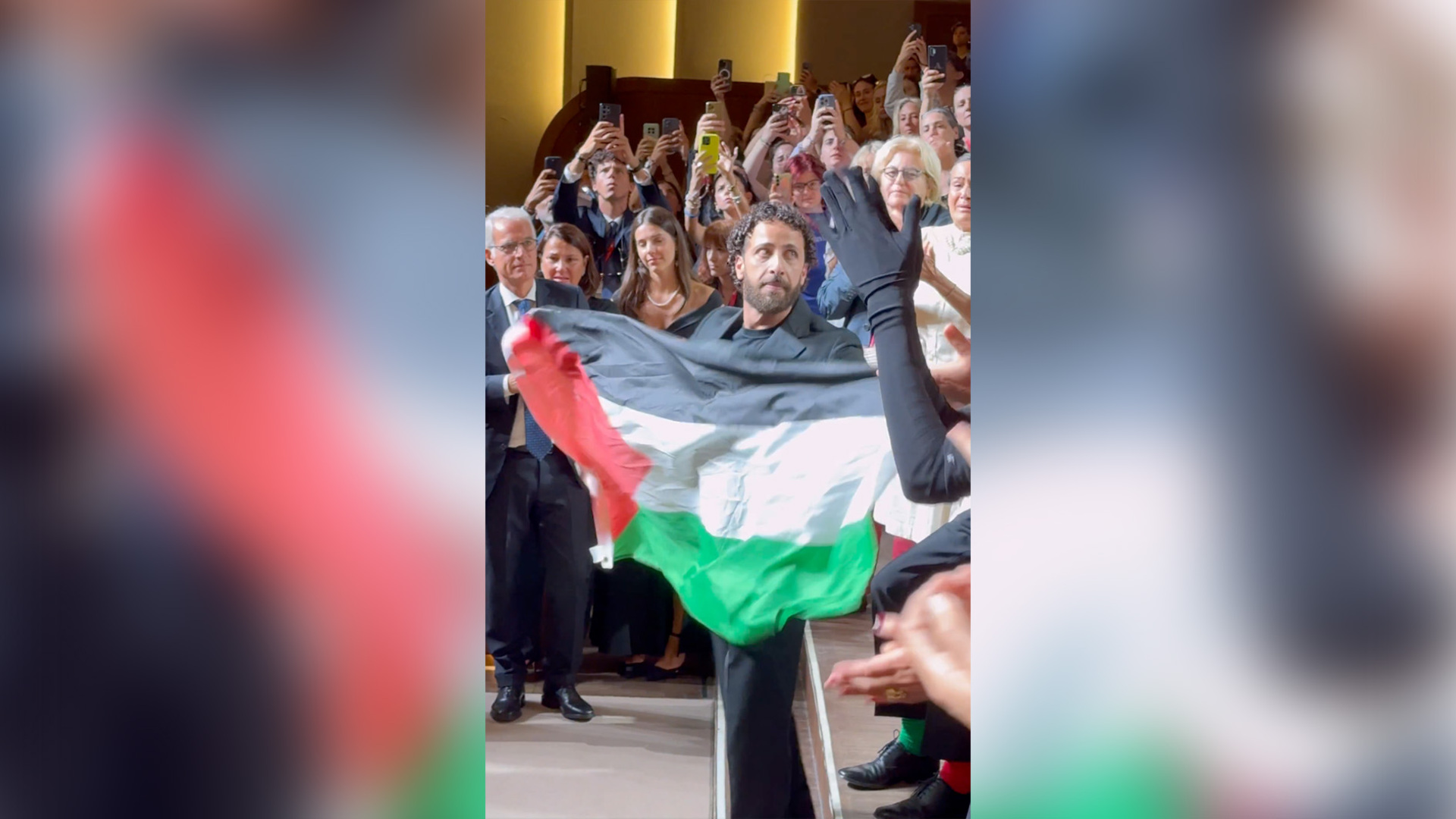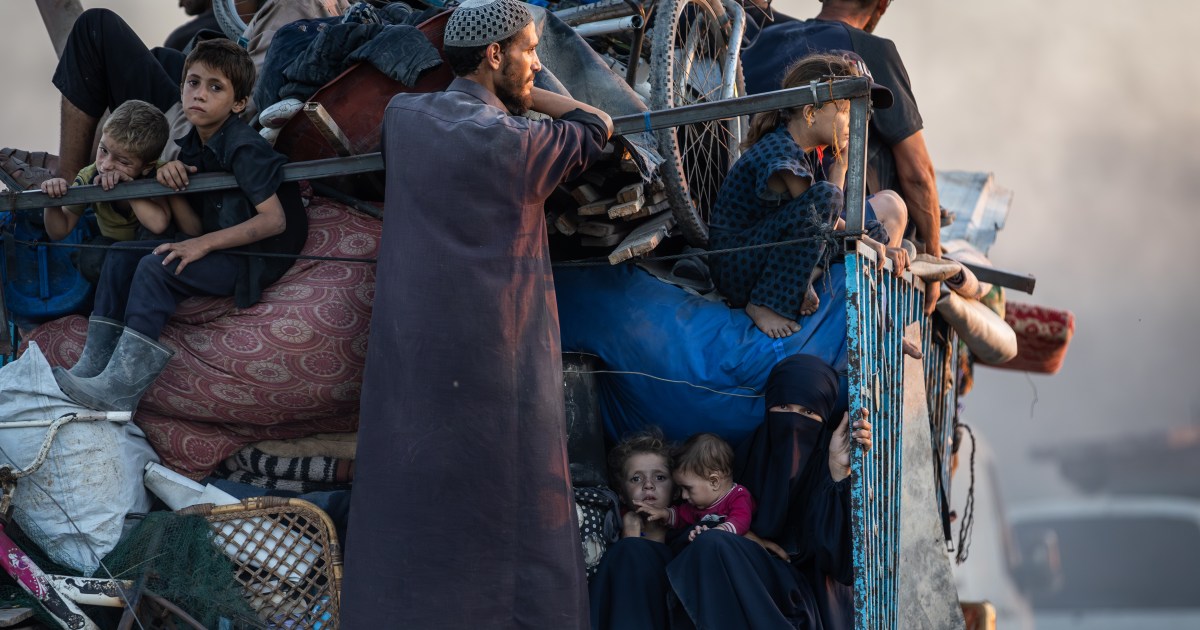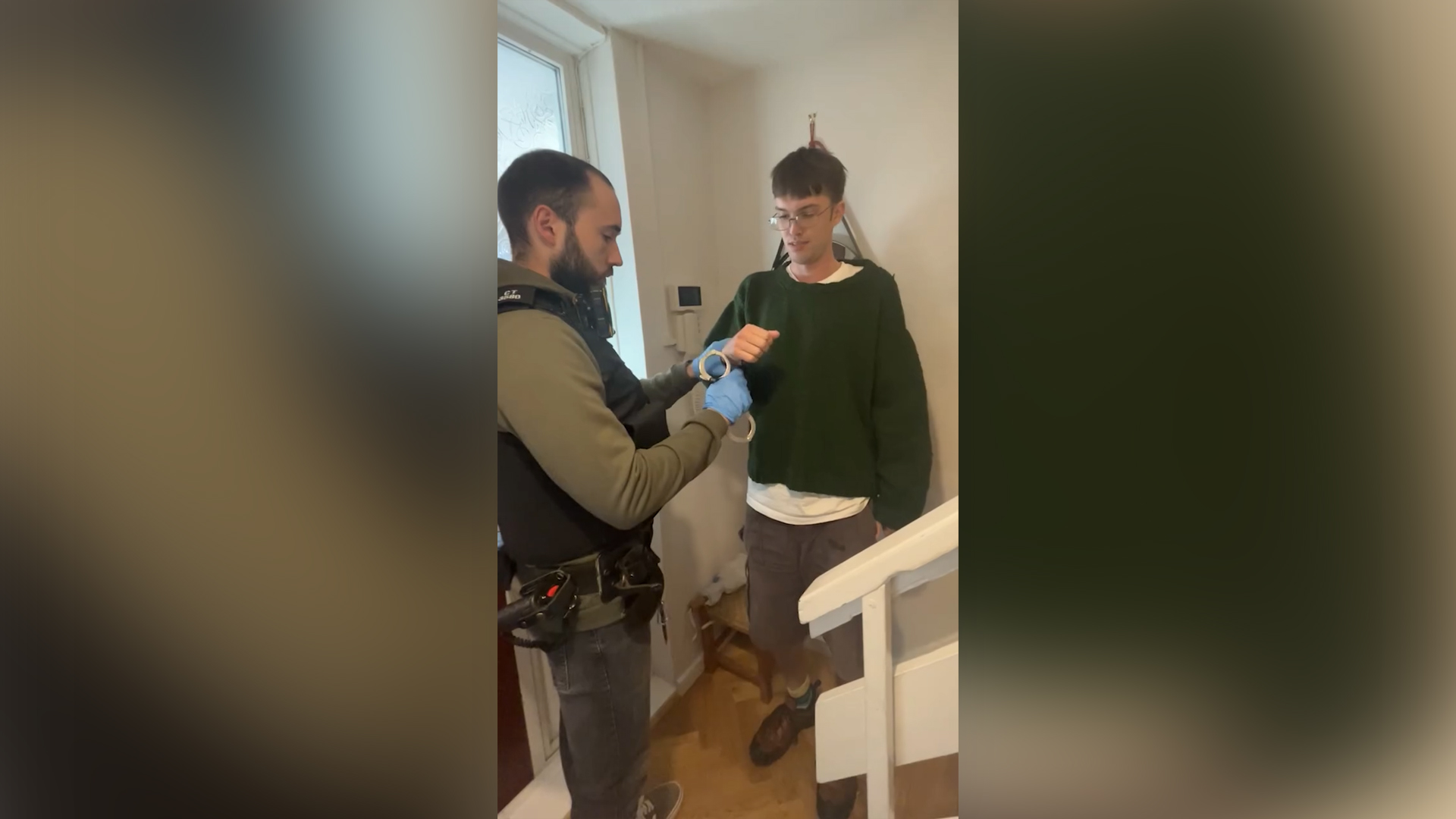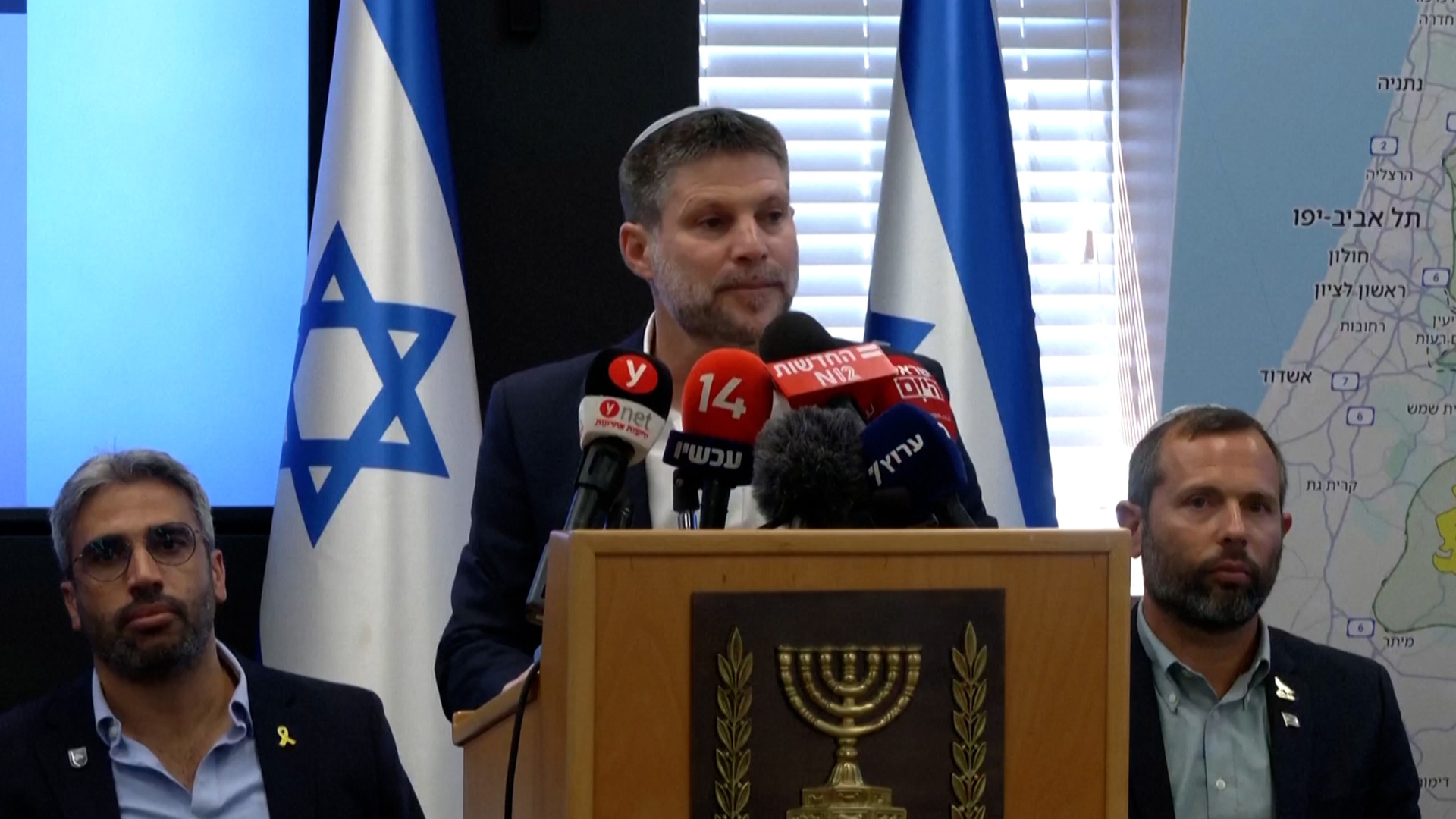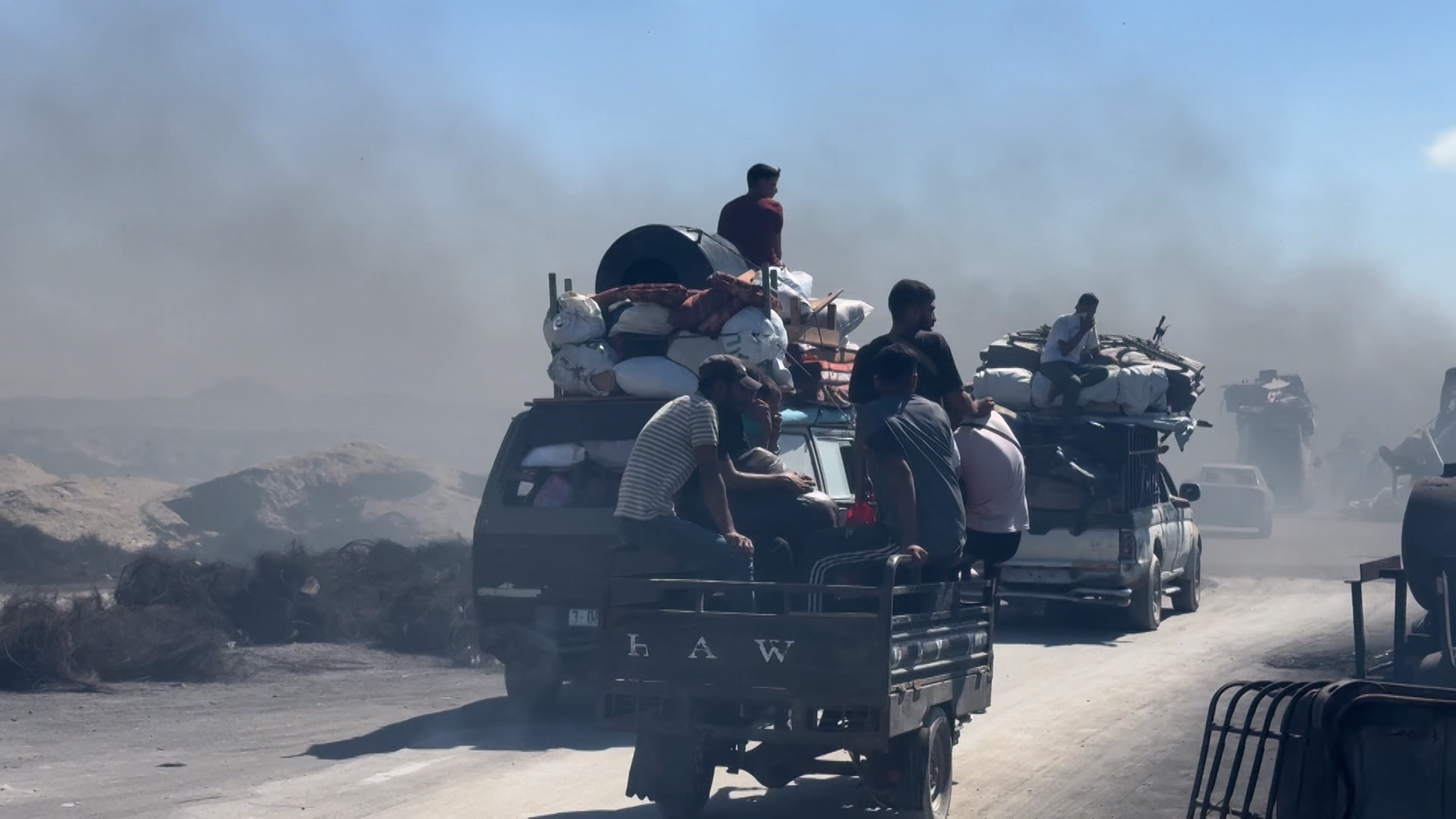Israel intensifies Gaza City destruction, bombs another high-rise tower | Israel-Palestine conflict News
Israel has destroyed another high-rise in Gaza City, bringing the number of buildings razed during its campaign to seize the largest urban centre in the Gaza Strip to at least 50, according to the Palestinian Civil Defence.
The attack on Al-Ruya Tower on Sunday came as Israeli forces killed at least 65 people across the Gaza Strip, including 49 in the northern part of the besieged enclave.
Recommended Stories
list of 3 itemsend of list
The Israeli military said it struck Al-Ruya Tower on Sunday after issuing an evacuation threat, forcing residents and displaced families sheltering in makeshift tents in the neighbourhood to flee.
The head of the Palestinian NGOs Network, Amjad Shawa, who was near the site of the attack, told Al Jazeera that the situation “is scary”, with panic spreading among the people.
“Today, hundreds of families lost their shelters. Israel [is] aiming to force Palestinians to the southern areas using these explosions, but everyone knows that there is no safe place in the south or any humanitarian zone,” Shawa said.
Israeli Prime Minister Benjamin Netanyahu claimed that the military was “eliminating terrorist infrastructure and nefarious terrorist high-rises”, a talking point that Israel often repeats as it obliterates civilian infrastructure in Gaza.
The attack on Al-Ruya – a five-storey building with 24 apartments, as well as department stores, a clinic and a gym – follows an earlier one on the Al Jazeera Club in central Gaza City, where tents housing displaced families were also hit.
It comes after Israel targeted the 15-storey Soussi Tower on Saturday and the 12-storey Mushtaha Tower on Friday. Several Palestinians sheltering in tent encampments around those towers were wounded.
One family that had their shelter destroyed when the Soussi Tower was reduced to rubble said, “We have nothing left for us.”
“We quickly left the building without bringing anything with us. The Israelis attacked the building half an hour later,” the Palestinian man said. “Now, we are trying to stay away from the eyes of the other people by trying to sew some fabrics and sheets,” he said, referring to his family’s attempt to put up a new shelter.
Israeli escalation in Gaza City
Israel’s security cabinet approved a plan for the military occupation of Gaza City in August, a move Netanyahu suggested had already led to the displacement of 100,000 Palestinians.
As Israel pushes to displace residents of Gaza City to the south of the enclave, Palestinians have been saying that nowhere is safe in the territory.
Gaza’s Ministry of Interior issued a statement on Sunday warning Palestinians in Gaza City not to trust Israel’s claim that it had set up a humanitarian zone in the al-Mawasi area of Khan Younis.
“We call on citizens in Gaza City to beware of the occupation’s deceitful claims about the existence of a humanitarian safe zone in the south of the Strip,” it said in a statement.
The Israeli military had designated al-Mawasi a “humanitarian zone” early on in its campaign against Gaza. Since then, it has been bombed repeatedly.
Al Jazeera’s Hani Mahmoud reported that “every five to 10 minutes, you can hear the sounds of explosions from all directions in Gaza City”, including heavy bombing in the Sabra and Zeitoun neighbourhoods.
“Israeli forces are using remotely controlled explosive robots, and detonating them in residential streets, destroying neighbourhoods,” he said. In Sheikh Radwan, Mahmoud added, homes, public facilities, schools and a mosque had been hit.
Rescuers reported that at least eight Palestinians, including children, were killed when Israeli forces bombed the al-Farabi school-turned-shelter, west of Gaza City.
Sohaib Foda, who was sleeping on a mattress in Gaza City’s al-Farabi School when the attack took place, said the attack left her and a young relative wounded.
“I heard a thud, and a block fell on my face. My cousin’s daughter, who was sleeping here, got injured and fell beside me. Another block then fell on her head,” Foda said.
“Everyone was screaming. I was scared. When I touched my face, it was covered in blood, and I realised I had been injured.”
Mohammed Ayed, who witnessed the attack, said the school was hit by two rockets. He said teams were still working in the rubble to rescue missing people or recover their remains.
“We have recovered two hands so far,” he said. “As you can see, these are children’s hands.”
Israel’s war on Gaza has killed at least 64,368 Palestinians and wounded 162,776 since October 2023, according to Gaza’s health authorities. Thousands more remain buried under the rubble as famine continues to spread across the enclave.
The Palestinian Ministry of Health in Gaza, meanwhile, said at least five people, including three children, have starved to death in Gaza over the past day.
These figures bring the total number of malnutrition deaths in Gaza to 387, including 138 children, since the start of Israel’s war on Gaza. Since the global hunger monitor, IPC, confirmed the famine in northern Gaza on August 22, at least 109 hunger-related deaths have been recorded, 23 of them children, the ministry added.
Academics, United Nations experts and leading rights groups have described the horrific Israeli atrocities in Gaza as a genocide.
Later on Sunday, United States President Donald Trump suggested that he put forward a new proposal to end the war in Gaza, calling it a “final warning” for Hamas.
The Palestinian group acknowledged receiving “ideas” from the US, saying that it welcomes any efforts to reach a lasting ceasefire.
